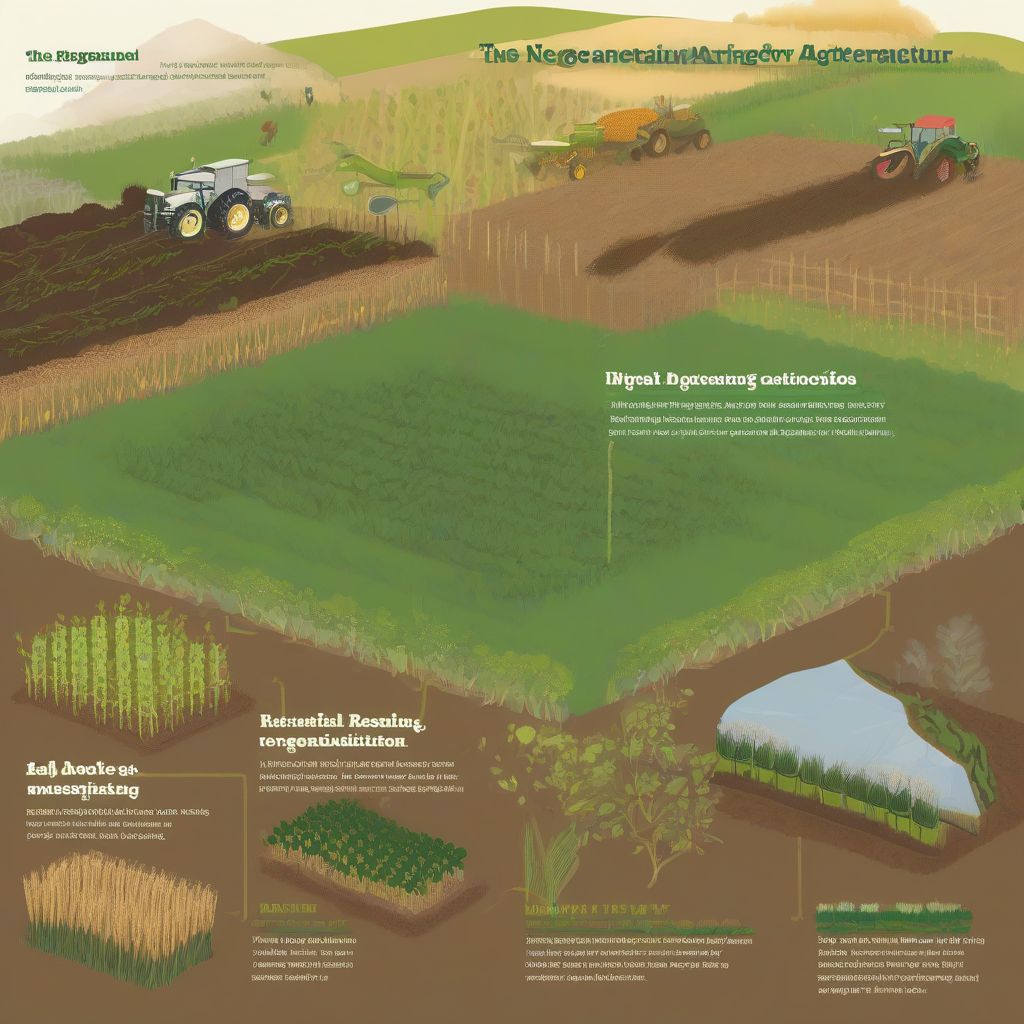Imagine a world where fertile fields stretch as far as the eye can see, bursting with vibrant crops that nourish our growing population. This isn’t a scene from a utopian dream; it’s a future entirely within our reach—if we prioritize soil health in sustainable agriculture.
As a nutritionist and meal-planning coach, I’m deeply passionate about the food we consume and its journey from farm to table. And let me tell you, healthy soil is the unsung hero of the story. It’s the foundation upon which our entire food system depends.
The Silent Crisis Beneath Our Feet
For decades, conventional agricultural practices have prioritized maximizing yields, often at the expense of our precious soil. Intensive tilling, monoculture farming, and excessive use of synthetic fertilizers have degraded soil health, leading to erosion, nutrient depletion, and reduced water retention.
Think of it like this: Imagine constantly taking from your savings account without ever making a deposit. Eventually, you’ll run out of funds. Similarly, our current agricultural practices are depleting the soil’s natural capital, jeopardizing future food security.
A New Dawn for Sustainable Agriculture
The good news is that a growing movement towards sustainable agriculture offers hope. This approach emphasizes practices that enhance soil health, protect biodiversity, and minimize environmental impact. Here’s how the future of soil health looks promising:
1. Regenerative Agriculture: A Holistic Approach
Imagine farms that mimic nature’s intricate web of life. That’s the essence of regenerative agriculture. This approach focuses on:
- Minimal Tilling: Reducing soil disturbance to preserve its structure and microbial life.
- Cover Cropping: Planting non-cash crops to protect and enrich the soil between main crops.
- Crop Rotation: Alternating different crops to interrupt pest cycles and improve soil fertility.
- Composting and Manure Management: Adding organic matter to enhance soil structure and nutrient content.
These practices work in harmony to rebuild soil organic matter, the key to its fertility and resilience.
 Regenerative Agriculture Practices
Regenerative Agriculture Practices
2. Technological Advancements: Precision for a Healthier Future
Imagine having real-time data at your fingertips to make informed decisions about soil health. Technological advancements are revolutionizing the way we monitor and manage our soils:
- Precision Farming: Using sensors, GPS, and data analytics to optimize fertilizer and water use, minimizing waste and environmental impact.
- Soil Testing Kits: Providing farmers with detailed insights into their soil’s nutrient levels, enabling them to make precise amendments.
- Artificial Intelligence (AI): Analyzing vast amounts of data to predict soil health trends and optimize management practices.
These technologies empower farmers to make data-driven decisions, maximizing yields while minimizing their environmental footprint.
3. Consumer Awareness: The Power of Choice
Imagine a world where consumers demand sustainably grown food. As awareness about soil health grows, so does the demand for food produced using practices that protect our planet.
- Supporting Local Farmers: Choosing food from local farms that prioritize sustainable practices.
- Seeking Certifications: Looking for labels like “Certified Organic” or “Regenerative Organic Certified” that indicate responsible farming methods.
- Educating Ourselves: Learning about the impact of our food choices on soil health and the environment.
By making conscious choices, we can drive the demand for food that nourishes both our bodies and the planet.
The Time to Act is Now
The future of our food system, our environment, and our very well-being hinges on the health of our soils. By embracing sustainable agriculture practices, investing in innovative technologies, and making informed choices as consumers, we can create a world where thriving soils support a vibrant and food-secure future. Let’s cultivate a deeper connection to the ground beneath our feet and nurture the foundation for generations to come.
What steps are you taking to support sustainable agriculture and protect our precious soil? Share your thoughts in the comments below!
[amazon bestseller=”soil health”]
